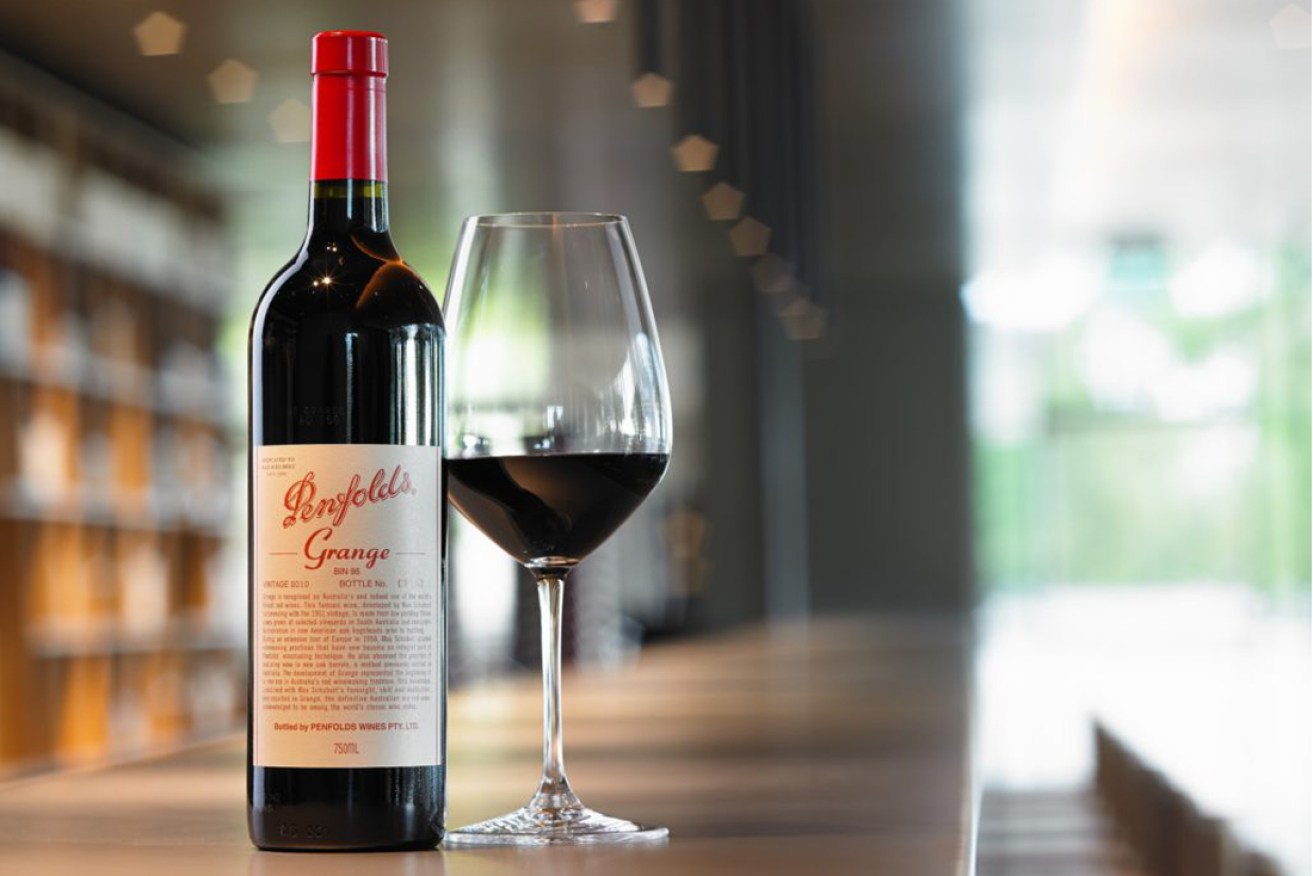TWE pulls Penfolds range from China as 169 per cent tariff kicks in
Australia’s largest listed wine company Treasury Wine Estates has unveiled its plan to reduce the impact of harsh Chinese tariffs as its share price continues to slide.


The company, whose brands include Penfolds, Wolf Blass, Pepperjack and Wynns, says from Saturday in China its wines in containers of two-litres or less are subject to a ‘Provisional Measure’ deposit rate of 169.3 per cent until August 28, 2021 at the latest.
It expects demand for its portfolio in China will be ‘extremely limited’ while the measure remains in place.
The final determination of the anti-dumping investigation will determine whether the provisional measure becomes permanent.
TWE’s share price has lost another 7.6 per cent this morning to $8.52 at noon after it dropped 11 per cent on Friday ahead of a trading halt on the ASX.
In an announcement to the ASX this morning, TWE said it would reallocate its Penfolds Bin and Icon range, which includes top-shelf products such as Bin 389 and Grange, to other luxury growth markets including Europe, the US, Australia and Asian markets outside China.
It will also fast track investment into sales and marketing resources in these other markets.
Chinese demand previously accounted for 25 per cent of Penfolds’ global allocation by volume and 39 per cent by value.
Last financial year, China represented about 30 per cent of TWEs total group earnings.
TWE will also reallocate luxury grapes previously earmarked for Penfolds to other Premium Australia brands including Wynns, Wolf Blass, Seppelt and Pepperjack which it says have been significantly supply constrained in recent years.
The Chinese government announced on Friday it would impose duties on Australian wine of between 107 and 212 per cent following an “anti-dumping” inquiry announced as part of a suite of measures in past months targeting Australian exports.
China is Australia’s largest wine export market with $1.2 billion worth shipped last financial year. South Australia is responsible for 50 per cent of Australian wine production.
TWE CEO Tim Ford said the company would continue to engage with the Chinese Ministry of Commerce as the investigation proceeded to ensure its position is understood.
“We are extremely disappointed to find our business, our partners business and the Australian wine industry in this position,” he said.
“The strength of our brands, including Penfolds, combined with our diversified business model will allow TWE to implement a range of changes and plans that will enable us to manage through the significant impact of these measures going forward.
“However, there is no doubt this will have a significant impact on many across the industry, costing jobs and hurting regional communities and economies which are the life blood of the wine sector.”
Australian Grape & Wine Chief Executive Tony Battaglene said the tariffs were preliminary and both the anti-dumping and countervailing duties investigations were ongoing.
“We continue to stand firm that Australian exporters are not dumping wines in the Chinese market, nor have they received subsidies that have had a negative impact on the Chinese wine industry,” he said.
“While we are disappointed with this development, our members will continue to cooperate with MOFCOM as the investigation continues, working towards an outcome that is consistent with the facts of the case, and supports the growth of the wine industry in Australia and China.”
Meanwhile, Australia will continue with plans to take China to the World Trade Organization over barley exports.
The move comes after federal government appeals through China’s domestic systems failed to overturn tariffs placed on the barley industry, as a result of “an ongoing anti-dumping and countervailing duties investigation”.
Trade Minister Simon Birmingham told ABC News this morning that while a final decision was yet to be made, the integrity of Australian producers should be defended.
“We know that our grain growers, just like our winemakers, aren’t government subsidised,” he said.
“They don’t dump their product on global markets below value and that Australia is a country who has been a member of the WTO and its predecessor entity, since 1948, believes in a rules-based system for trade.
“And when you believe in a rules-based system and you think that the rules are being broken, then you ought to call in the independent umpire to help to resolve those sorts of issues.”




